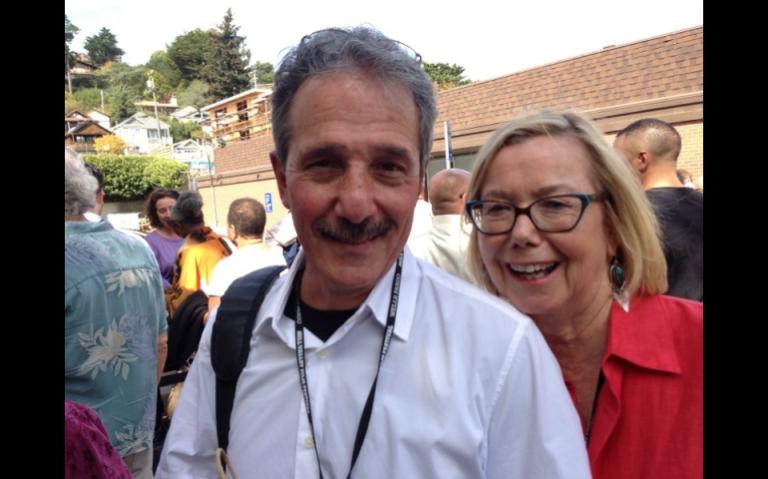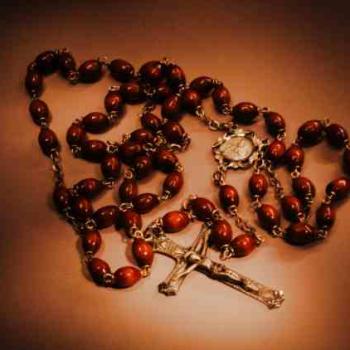
Director Joseph De Francesco never forgot the impression that Stephen Vincent Benet’s epic 1928 Pulitzer Prize-winning poem made when he was a student at St. Gregory’s, a high school diocesan minor seminary in Cincinnati. There he found, and admittedly stole, a recording of the 1953 Broadway performed recitation of the poem by Tyrone Power, Judith Anderson, and Raymond Massey. It was adapted and directed by Charles Laughton. De Francesco still has the record.
For his junior year, deciding the path to the priesthood was not for him, De Francesco transferred to what is now Purcell Marian High School in Cincinnati. He was a sports guy who loved drama. The head of the high school’s theater group then was Fr. Clarence Rivers, the first African-American ordained in the archdiocese of Cincinnati. Rivers stayed in contact with De Francesco until Rivers’ death in 2004. It was Rivers who encouraged De Francesco when he first expressed interest in dramatizing “John Brown’s Body.” The documentary is dedicated to Rivers.
When Rivers was ill, De Francesco said he would call him to ask how he was. The priest would answer, “Nothing has changed” – a line from “John Brown’s Body” that spoke to the priest’s well-being and also as a social commentary.
De Francesco’s early day job was that of a freelance film editor, but theater was in his soul and he tried over the years to interest theatrical groups in “John Brown’s Body.” “The prison was the last resort to dramatize this,” De Francesco said.
“I had written to Charlton Heston, Meryl Streep, and Denzel Washington, but got no responses,” De Francesco said. “I tried everywhere to get a troupe to do it, even little theaters, but no one seemed to care about it. I made cassettes of the record and the people I spoke to seemed bored with it, even though the music alone by Walter Schumann is spectacularly beautiful.”
But rejections and lack of interest didn’t stop De Francesco, eventually turning to the prison and prison actors to make this amazing and inspiring 72-minute documentary film. It took three years to showcase and another 12 years to make the documentary.
De Francesco said he is certain that if CLICK HERE to continue reading on my blog at National Catholic Reporter












